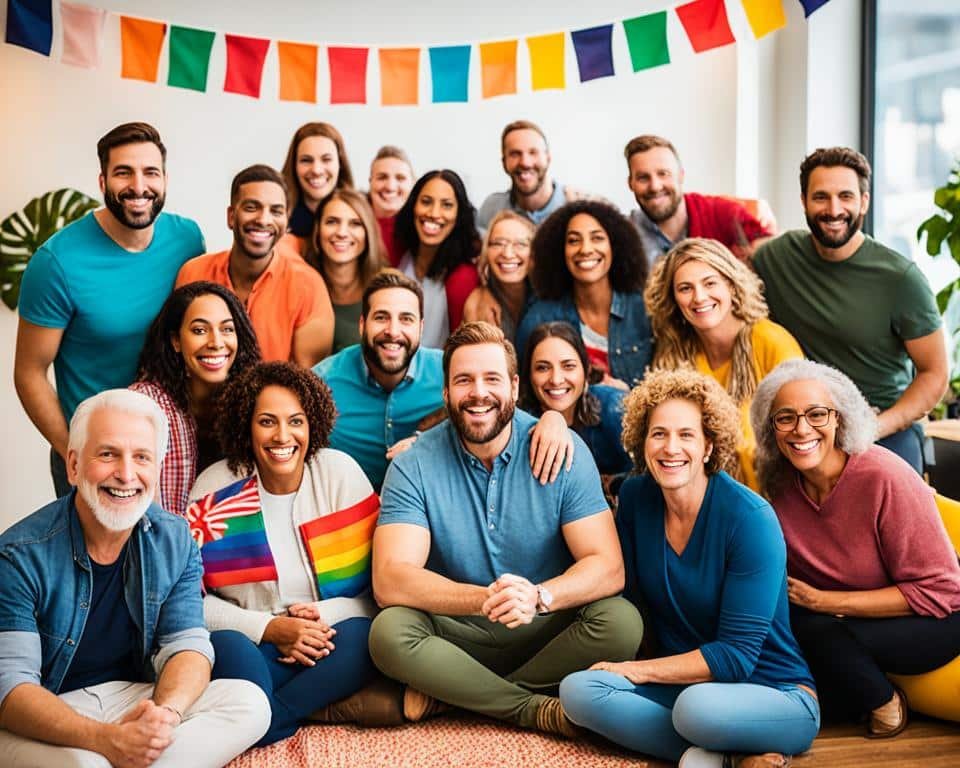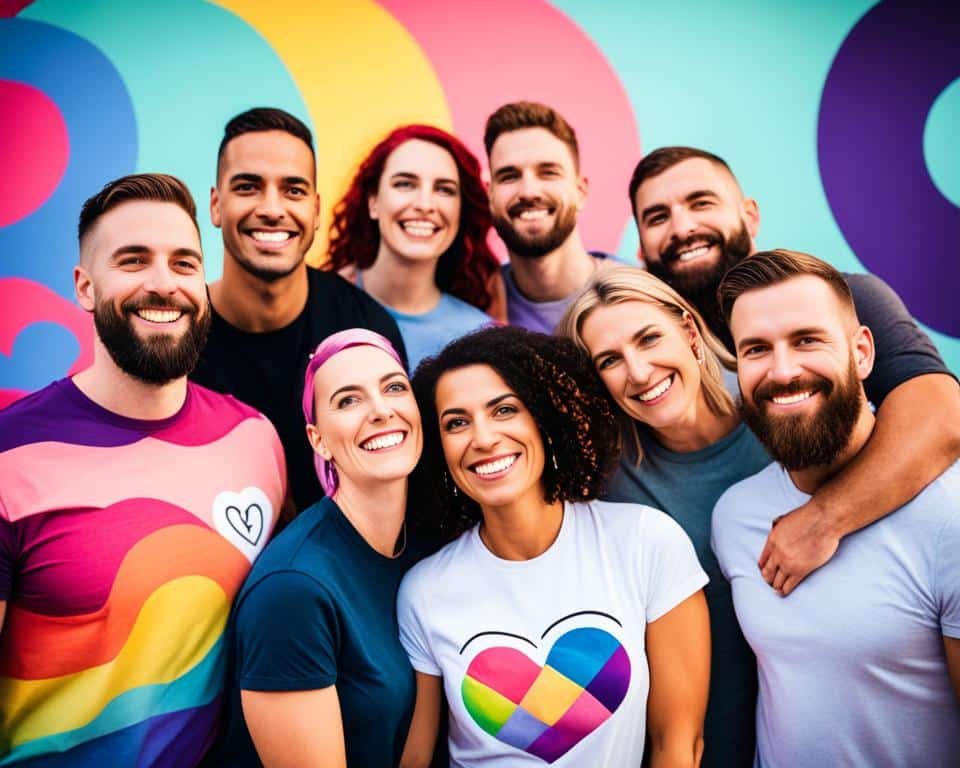Have you ever felt like there might be more to love than society has led us to believe? That perhaps our capacity for loving others extends beyond the boundaries of traditional monogamy? If so, you’re not alone. Polyamory, a practice that allows for multiple romantic relationships with the consent and knowledge of all involved, has been gaining traction as a viable and fulfilling alternative to traditional monogamy. It offers a path to explore deeper connections and a more expansive understanding of love.
Maybe you’ve heard of polyamory before, or maybe it’s a concept that’s entirely new to you. Either way, I invite you to embark on this journey of exploration and discovery. Together, we’ll delve into the intricacies of polyamorous relationships and the principles of ethical non-monogamy. We’ll explore how open communication, trust, and mutual respect form the foundation of these relationships.
Throughout this guide, we’ll draw upon the wisdom and experiences shared by experts in the field, such as Franklin Veaux and Eve Rickert, authors of “More Than Two: A Practical Guide to Ethical Polyamory.” Their insights will provide us with a roadmap to navigate the complexities and joys of polyamory.
Key Takeaways:
- Polyamory is a practice that allows for multiple romantic relationships with the consent and knowledge of all involved.
- Open communication, trust, and mutual respect are foundational to polyamorous relationships.
- “More Than Two: A Practical Guide to Ethical Polyamory” offers valuable insights and guidance in navigating polyamory.
- Polyamory provides an opportunity to explore deeper connections and challenge societal norms around love.
- By embracing polyamory, individuals can find fulfillment in multiple loving relationships.
What is Polyamory?
Polyamory is a relationship style that embraces the possibility of having multiple loving and supportive relationships simultaneously. Unlike open relationships that may focus solely on casual or sexual connections, polyamory encompasses both emotional and sexual connections with multiple partners. It is a conscious choice to engage in ethical non-monogamy, where all relationships are built on open communication, trust, and respect.
There are various types of polyamory, each offering a unique approach to navigating multiple connections. In hierarchical polyamory, one relationship is prioritized, typically with a primary partner, while maintaining other secondary relationships. On the other hand, egalitarian polyamory treats all relationships as equal and strives for balance and fairness among all partners. Additionally, there is solo polyamory, where individuals value their independence while still engaging in multiple committed relationships.
Defining and communicating the structure of polyamorous relationships is crucial to ensure that everyone’s needs and boundaries are respected. Open and honest conversations about expectations, desires, and boundaries create a solid foundation for healthy and fulfilling polyamorous relationships. By fostering understanding and establishing clear guidelines, individuals can navigate the complexities of polyamory with compassion and mutual consent.
“Polyamory is not about having your cake and eating it, too. It is about recognizing that love and connection are not finite resources. We have the capacity to experience meaningful connections with multiple individuals without diminishing the depth or authenticity of each relationship.”
To illustrate the diversity and beauty of polyamory, let’s explore some common scenarios:
Scenario 1: Hierarchical Polyamory
In hierarchical polyamory, Sarah is married to David and they consider their relationship as the primary one. They both have secondary partners, Emily and Mark, respectively. While Sarah and David prioritize their commitments to each other, they value and nurture their connections with Emily and Mark as well. Each relationship has its own unique dynamic and boundaries, ensuring that everyone involved feels seen and supported.
Scenario 2: Egalitarian Polyamory
In egalitarian polyamory, Marie, Alex, and Ryan are in a triad relationship. Each member is equally committed and invested in the relationship, and they prioritize open communication and decision-making among themselves. Marie and Alex also have separate partners, Laura and Jake, respectively. All partners are aware of and support each other’s connections, creating a balanced and respectful network of relationships.
Scenario 3: Solo Polyamory
Tom values his independence and autonomy, but still desires meaningful connections with others. He practices solo polyamory by engaging in multiple committed relationships while maintaining his individuality and personal space. Tom has open conversations with each partner about his polyamorous lifestyle, ensuring that everyone involved is comfortable with the arrangement and their needs are met.
Polyamory is an alternative relationship style that challenges societal norms and explores the boundless nature of love and connection. It requires individuals to navigate complex emotions, communicate openly, and foster a strong sense of trust among all partners. By embracing polyamory, one can explore deeper connections, personal growth, and a broader understanding of what it means to love and be loved.

Navigating Polyamory
Communication is the cornerstone of successful polyamorous relationships. In order to maintain healthy connections, it is crucial to engage in open and honest conversations about desires, boundaries, and expectations. By actively and empathetically listening to your partners and expressing your own needs and wants, you can establish a solid foundation of trust and mutual understanding.
Jealousy is a common emotion that can arise in polyamory, but it doesn’t have to be detrimental to your relationships. It’s important to address jealousy head-on and recognize it as a normal human emotion. Through open communication and reassurance, you can navigate jealousy together and work towards finding solutions that prioritize everyone’s well-being.
Building a supportive community of like-minded individuals can provide invaluable guidance and solidarity on your polyamorous journey. Connecting with others who are part of the polyamory community can offer a sense of belonging and understanding. Online resources such as podcasts, books, and social groups can provide advice, insights, and a wealth of experiences to learn from.
Online Resources for Navigating Polyamory
- Polyamory Weekly: A podcast hosted by Cunning Minx that explores various topics related to ethical non-monogamy, including communication, jealousy, and building healthy relationships.
- The Ethical Slut: A groundbreaking book by Dossie Easton and Janet W. Hardy that delves into the ethical framework of non-monogamy, offering guidance on communication, boundaries, and exploring multiple relationships.
- Polycule: An online social platform that allows individuals in polyamorous relationships to connect and share experiences, providing a supportive network of like-minded individuals.
Remember, navigating polyamory is a unique and personal journey. By prioritizing open communication, addressing jealousy, and seeking support from the polyamory community, you can create fulfilling and meaningful connections with multiple partners.

Resources for Polyamory
If you’re interested in exploring polyamory, there are plenty of resources available to support you on your journey. Whether you’re looking for advice, guidance, or a sense of community, these resources can provide valuable insights and connections.
Podcasts
Podcasts are a great way to delve deeper into the world of polyamory and learn from the experiences of others. Some noteworthy podcasts in the polyamory community include:
- Multiamory: Hosted by Emily Matlack, Dedeker Winston, and Jase Lindgren, this podcast offers a wealth of knowledge on polyamory, relationships, and personal growth.
- Non-Monogamy Help: Creator and host Lola Phoenix answers listener questions and provides advice on navigating ethical non-monogamy, including polyamorous relationships.
Books
If you prefer delving into the written word, there are several books that provide comprehensive guides to polyamory:
“The Ethical Slut” by Dossie Easton and Janet W. Hardy offers insights into ethical non-monogamy and explores ways to navigate polyamorous relationships.
“More Than Two” by Franklin Veaux and Eve Rickert is a practical guide that covers various aspects of ethical polyamory, including communication, jealousy, and building healthy relationships.
Social and Support Groups
Connecting with like-minded individuals can provide a sense of community and support on your polyamory journey. Consider joining online or in-person social and support groups where you can share experiences and gain insights from others who understand:
- Polyamory Support Group: A safe space for individuals to discuss their experiences, ask questions, and seek support in a non-judgmental environment.
- Polyamory Lifestyle Community: A community forum where members can share stories, advice, and resources related to polyamory.
Polyamory-specific Dating Apps and Websites
When it comes to polyamory dating, there are dedicated apps and websites that cater specifically to individuals seeking polyamorous connections:
- OpenMinded: This dating platform welcomes individuals who are non-monogamous and supports open communication and multiple relationships.
- PolyFinda: A dating app designed for polyamorous individuals to connect and explore meaningful relationships.

| Resource | Description |
|---|---|
| Podcasts | Listen to experienced polyamorous individuals share insights and advice on navigating polyamory. |
| Books | Comprehensive guides to ethical non-monogamy and polyamorous relationships. |
| Social and Support Groups | Find a sense of community, support, and understanding among like-minded individuals. |
| Polyamory-specific Dating Apps and Websites | Connect with individuals seeking polyamorous relationships through dedicated platforms. |
Conclusion
Polyamory offers a unique and fulfilling approach to relationships, allowing individuals to explore multiple connections with the consent and support of all involved. It is a form of ethical non-monogamy that prioritizes open communication, trust, and mutual respect. While polyamory may not be the right fit for everyone, for those who embrace it, it can provide a rewarding and satisfying relationship style.
By utilizing available resources and building a supportive community, individuals can navigate the complexities and joys of polyamorous relationships. Books like “More Than Two” and “The Ethical Slut” offer valuable guidance and insights into ethical non-monogamy. Podcasts such as Multiamory and Non-Monogamy Help provide a platform for discussions and advice from experienced polyamorous individuals. Online and in-person social and support groups create a space for connection, learning, and sharing experiences.
To thrive in polyamory, maintaining open communication is crucial. Honest conversations about desires, boundaries, and expectations are essential for all parties involved. While jealousy may arise, addressing it through open communication and reassurance can help strengthen relationships. Remember, polyamory is about consent, respect, and the freedom to explore multiple loving connections in a way that aligns with the values and needs of everyone involved.
FAQ
What is polyamory?
Polyamory is the practice of having multiple romantic partners with the consent and knowledge of all involved. It is a form of ethical non-monogamy that emphasizes open communication, trust, and mutual respect.
How is polyamory different from open relationships?
Polyamory encompasses both emotional and sexual connections, whereas open relationships may focus primarily on sexual exploration. Polyamory emphasizes multiple loving and supportive relationships simultaneously.
What are the different types of polyamory?
There are various types of polyamory, including hierarchical polyamory, where one relationship is prioritized, and egalitarian polyamory, where all relationships are considered equal. Solo polyamory is also an option for those who value their independence while still engaging in multiple committed relationships.
How important is communication in polyamorous relationships?
Communication is key in polyamorous relationships. Open and honest conversations about desires, boundaries, and expectations are essential for maintaining healthy connections.
How can jealousy be addressed in polyamory?
Jealousy in polyamory can be addressed through open communication and reassurance. By discussing their insecurities and fears, individuals can work together to find solutions and strengthen their relationships.
What resources are available for those interested in polyamory?
There are various resources available for individuals interested in polyamory. Podcasts like Multiamory and Non-Monogamy Help provide valuable insights and advice from experienced polyamorous individuals. Books like “The Ethical Slut” and “More Than Two” offer comprehensive guides to ethical non-monogamy and navigating polyamorous relationships. Social and support groups, both online and in-person, can provide a sense of community and connection.
Are there specific dating apps and websites for polyamorous connections?
Yes, there are polyamory-specific dating apps and websites that cater to individuals seeking polyamorous connections. These platforms offer a space to connect with like-minded individuals who are open to ethical non-monogamy.
Is polyamory for everyone?
Polyamory may not be for everyone, as relationship styles and preferences vary. However, for those who embrace polyamory, it offers a unique and fulfilling approach to relationships that allows for multiple connections with consent and support from all involved.










